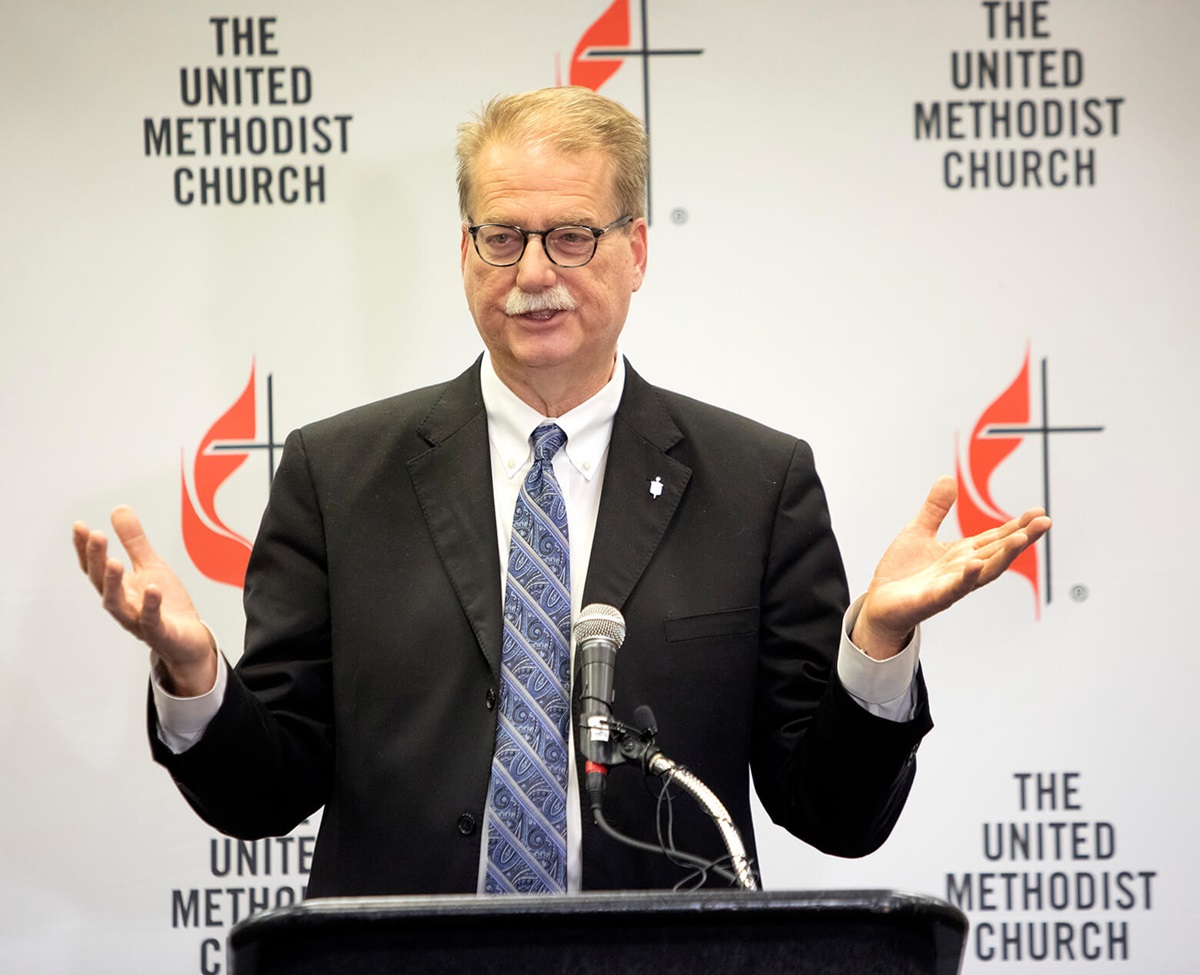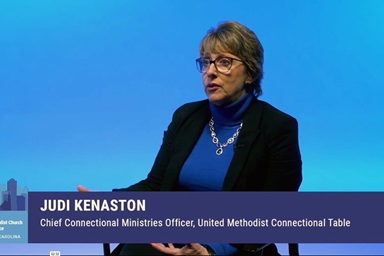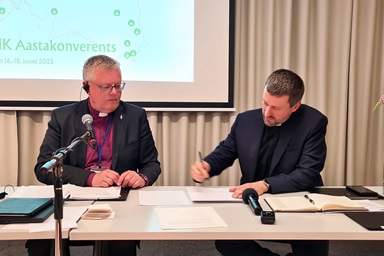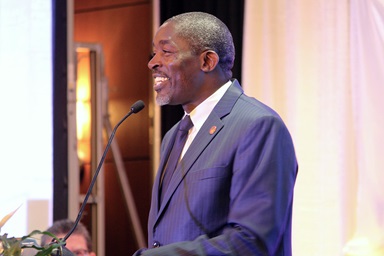The full ramifications of what happened at the 2019 General Conference are still unknown. However, a few things are coming clearer into view.
Since the denomination’s top lawmaking body adjourned Feb. 26, the following developments have occurred:
• One group that had previously raised the possibility of leaving The United Methodist Church announced that it has no immediate plans to do so;
• The General Conference Committee on Ethics announced it found no evidence to substantiate a delegate’s allegation of bribery;
• The denomination’s top court publicized deadlines for briefs ahead of its April meeting that will determine which of the newly approved legislation is in line with the denomination’s constitution;
• Bishops and other church leaders began the work of explaining what General Conference did and what lies ahead for the multinational denomination where church members still have divergent interpretations of Scripture and differing views of ministry with LGBTQ people.
A number of church leaders spoke of healing after a more than two-year process and days of rancorous debate that have left many feeling exhausted and hurt.
“Our interest is in the healing of the church — not the church as an institution or a bureaucracy — it’s for the healing of the church so that we can be better together, so that we can be there for each other,” said Bishop Kenneth Carter Jr., president of the Council of Bishops. “And it is to acknowledge the great harm people feel in the LGBTQ community.”
Carter spoke during a March 1 webinar for the Florida Conference, which he leads. He was among the bishops who are leading conversation in their areas both online and in person about General Conference votes.
Who was missing at General Conference?
Almost all annual conferences had at least some representation. However, neither the two delegates nor the reserves in the East Angola Conference could obtain visas, the General Conference business office said Feb. 27.
Delegates also adopted legislation that allows a church, with a two-thirds vote of the congregation and after paying certain expenses, to disaffiliate from the denomination with its property.
The Wesleyan Covenant Association had advocated for the Traditional Plan, a related modified version and an exit plan. Before General Conference, association leaders said they were considering calling a Convening Conference in April to form a new denomination.
The group specifically rejected the bishops’ recommended One Church Plan that left questions of marriage up to individual churches and ordination up to conference ordaining bodies.
With the passage of the Traditional Plan, the WCA’s leadership has decided to forgo an April gathering and any immediate plans to depart en masse.
The group thanked General Conference for reaffirming church teachings on sexual ethics and said it would remain committed to the missional effectiveness of The United Methodist Church.
“Our work will continue unabated as we address factors that have contributed to dysfunction and ineffectiveness,” the group said in a Feb. 28 statement. “We are committed to working with other United Methodists to achieve that end at the next General Conference in 2020, including a gracious exit provision. And should circumstances warrant, we remain prepared to launch a new Methodist movement.”
The Western Jurisdiction, which encompasses seven conferences in the western United States, has long acted as if church restrictions related to LGBTQ ministry do not exist. The jurisdiction is home to the Mountain Sky Conference’s Bishop Karen Oliveto, the denomination’s first openly gay and married bishop.
Oliveto and other Mountain Sky leaders said during a livestream March 1 that the jurisdiction intends to continue to maintain its openness on matters of homosexuality.
Still, the bishop acknowledged that General Conference has left its mark on many, and she has already heard about families leaving the denomination.
“The theology I was taught, the spirituality I was grounded in, was voted down at General Conference,” she said. “The big tent we have always held in tension, a beautiful tension, a beautiful witness to the world, was shrunk by 54 votes.”
However, she added, it’s not over.
New legislation does not take effect in the U.S. church until Jan. 1, 2020. In Africa, Europe and the Philippines, the legislation doesn’t take effect until 12 months after the next General Conference in May 2020.
Before the Traditional Plan can take effect, General Conference has referred it for review by the Judicial Council, the denomination’s top court. The Council of Bishops also has asked for the court to rule on the constitutionality of the church-disaffiliation provision delegates passed.
The Judicial Council, during General Conference, ruled a previous version of the disaffiliation legislation unconstitutional. The bishops argue the amended version that passed doesn't solve the constitutional problem the court identified because it does not require an annual conference to ratify the local church's decision.
The church court also has previously ruled parts of the Traditional Plan unconstitutional.
The denomination’s top court has already agreed to address the Traditional Plan when it meets April 23-25 in Evanston, Illinois.Regardless of what the court decides, people across the denomination will continue to look at next steps. Carter, in a pastoral letter on behalf of the Council of Bishops, said this will be a time for local church leaders to step up.
“Every church I have known in my life has had spiritual elders, mature spiritual leaders who care for the body, that is the people God has called together in a place,” Carter wrote. “I pray in this moment for mature spiritual leadership among the clergy and laity of our global church.”
Hahn is a multimedia news reporter for United Methodist News Service. Contact her at (615) 742-5470 or newsdesk@umcom.org. To read more United Methodist news, subscribe to the free Daily or Weekly Digests.
Like what you're reading? Support the ministry of UM News! Your support ensures the latest denominational news, dynamic stories and informative articles will continue to connect our global community. Make a tax-deductible donation at ResourceUMC.org/GiveUMCom.




